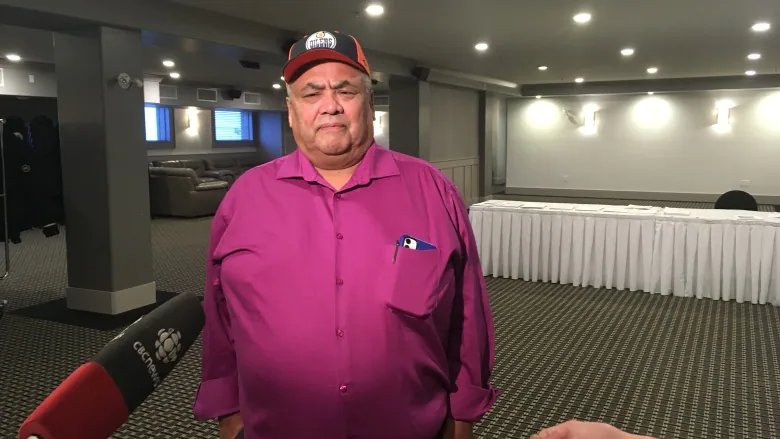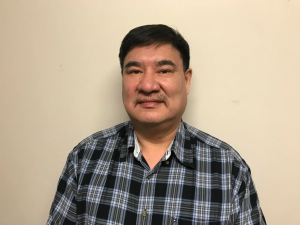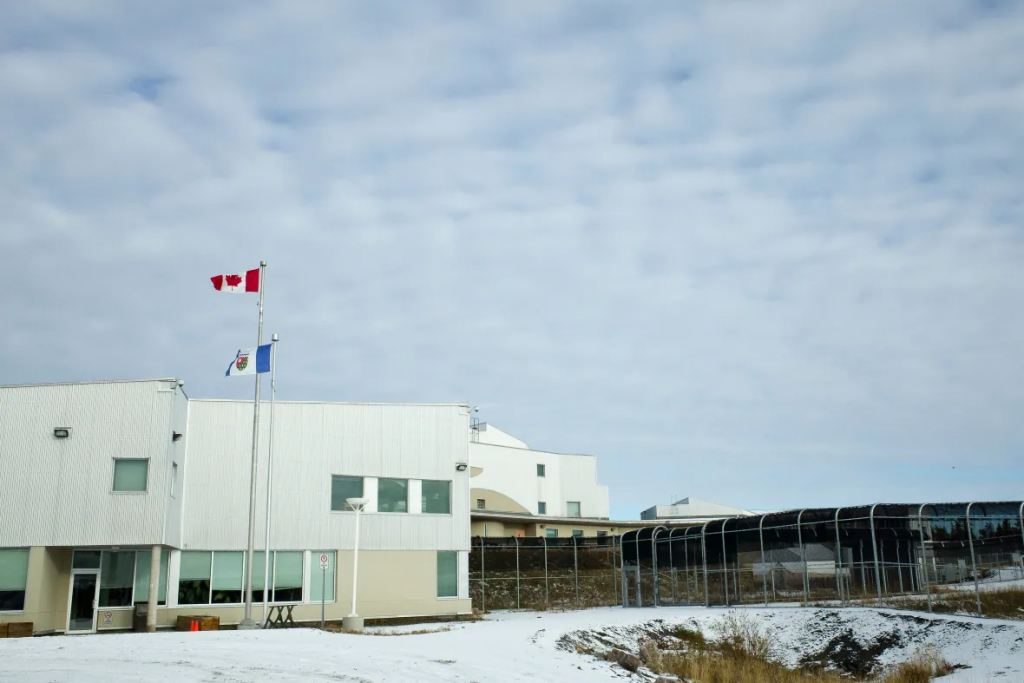Akaitcho chiefs call for support as communities grapple with suicide, addiction

Yellowknives Dene Chief Edward Sangris says he would support having a treatment centre in the Akaitcho
Two Akaitcho chiefs said the territorial government should establish a regional treatment centre as a way to help their communities deal with growing mental health issues including suicide, addiction and homelessness.
“If the minister can put a treatment centre in the Akaitcho territory, that would be wonderful news,” said Łutsel K’e Dene First Nation Chief James Marlowe.
This sentiment was echoed by Dettah Yellowknives Dene First Nation Chief Edward Sangris. He said after the contract ended for the one treatment facility in the N.W.T. a decade ago, his members were “left out in the cold again by the government.”
Sangris and Marlowe issued a news release Friday alongside the other Akaitcho Territory Government chiefs calling for more support from the territorial government to address the mental health issues their communities are experiencing.
The Akaitcho territory includes Dettah, Ndilǫ, Deninu Kųę́ First Nation, Łutsel K’e Dene First Nation and Smith’s Landing First Nation.
‘Losing people left and right’
Sangris said mental health issues are getting worse in Dettah, particularly with youth.
“We’re just losing people left and right to mental health issues such as suicides and, you know, here we are, we’re trying to alleviate the problem but we’re not getting resources or the help we need,” he said.
At least 29 people in the N.W.T. died by suicide in the past 22 months. The majority of them were young men.
In 2021, six people died by suicide in the North Slave region, which includes three Akaitcho communities. This was the most of any region.
An Akaitcho treatment centre
Marlowe said the communities need numerous programs like counselling and addiction services and that a treatment centre in the region could offer those.
There are currently no permanent addiction treatment centres in the N.W.T., meaning residents are forced to travel south for help.
But there was at one time a treatment centre outside Dettah that was run by the territorial government.
The 28-bed treatment centre operated for only eight years after it was built, shutting down in 1999. The territorial government said it was underused, but Sangris said he’s heard from members who say it helped them recover.

“In their eyes, it’s not working,” he said of the N.W.T. government. “But for our people that got through the program, we see them living a healthy lifestyle now.”
CBC News reached out to the territorial government for an interview with Julie Green, the N.W.T.’s health minister, about treatment centres and program funding, but she was not immediately available.
In the Legislative Assembly, Green has said treatment centres are not a focus for this current assembly. She said the ones that previously existed in the territory were underused, which led to the closures.
Criminal justice and homelessness
Marlowe said a major issue involves members who pass through the criminal justice system and are released with little opportunity to rehabilitate.
“We have people, you know, just like they’re thrown out on the streets with no place to live,” Marlowe said.
They are often released from the North Slave Correctional Complex in Yellowknife and then sent back to their home community, he added.
“They just say, ‘You’re a nuisance to Yellowknife, you have to go back,’ without no proper support or housing to live in.”

The North Slave Correctional Complex in Yellowknife. Two Akaitcho chiefs say there is not enough aftercare programing to assist members who have been released from prison. (Walter Strong/CBC)
Sangris said there are many contributing factors to the mental health issues he’s witnessing, one being not enough funding from the territorial government for impactful programs.
The territorial government offers funding for on-the-land programming, which includes $125,000 for regional or community governments and $30,000 to community governing authorities.
There is also $66,350 available for land-based mobile addiction treatment, family-based treatment and aftercare funding.
Additional funding streams that go toward initiatives for aftercare and peer support also exist, but these require a government, organization or individual to launch their own wellness program for the community or region.
Related stories from around the North:
Canada: N.W.T. MLAs call on government to take immediate action on suicide prevention, CBC News
Finland: Climate change worries Finland’s young reindeer herders, Yle News
United States: Craft space aims to teach Alaska Indigenous women skills — and help beat addiction, Alaska Public Media



